Learning to Cook with a Sephardi Mother
My Sephardi Mother is the original master.
I am always asked whether I have received formal cooking training, and the answer – Machane Imma: I learned mostly from my mother – at first seems somewhat ambiguous, until I introduce her in earnest: My Sephardi mother, known as Maman to the whole family and even to all our friends, is the ultimate artisan, and the original diva of glorious healthy meals: I wish to be in every way her disciple, and do her proud! I hope to continue to convey her genius at making quick, cheap, and healthy feasts to multitudes of grateful diners!
After my father’s passing, my mother finally took the plunge and moved from Morocco to New York, a move which she at first regarded as nothing short of an amputation, and only grudgingly accepted in time for logistics’ sake.
When she is staying with us, most Friday mornings she is in my kitchen by six to help me cook dinner for our Shabbos guests. We are an unlikely team: I like to work quickly and quietly, using every amenity the kitchen has to offer, with soft background music. She asks a thousand questions, fast and furious, and uses anyone in her line of vision as her assistant, to reach something high, as she’s very short but terrified of the step stool, or something low, as “I can’t bend because of my back.” Or something at eye level, as she doesn’t like to wear her glasses when she cooks. She is always calling out to my children, husband and housekeeper, “Bella, ma poupée; Flora, por favor! Yakov, chéri; Maurice, please!” and finally, her war cry, “La passoire! La passoire (the colander)!” Everything must always be good and dry before we can even think of going ahead with preparing any dish, “to prevent water damage.” In her (and my) opinion, this is one of the secrets of good cooking!
With the exception of the colander, my mother, who has been cooking all her life, scorns appliances, even low-tech ones, that were created to help the harried homemaker. All she believes in is brute force. My state of the art dough maker is supplanted by her furious kneading. In response to my plea, “Maman, it has a very powerful motor!” she dismissively replies, “I know, I know, but it doesn’t have a heart!” She takes no notice of my expensive retractable mop. Instead, she pours bucketfuls of soapy water onto the kitchen floor, scrubbing with a hard brush on all fours, like Cinderella, crooning old French songs by Rena Ketty and Tino Rossi and drying as she moves with a pile of what quickly become dirty rags but were once my nice dish towels. I have won two major victories, though. The first is, we do not carry the carpets onto the balcony and beat them with sticks to air them out as is done in Morocco (fortunately, we have no balcony): we use a vacuum cleaner, much to my mother’s dismay. The other is that, all protests aside, we buy our chickens dead and plucked. Period.
Quirks aside, my mother has made me the cook that I am. Her skills in the kitchen are nothing short of acrobatic. If the litmus test for a cook is to get fabulous results from ordinary ingredients, then she passes with flying colors. Her cooking always reminds me of the lyrics of the old French song L’Auvergnat that translates approximately as follows, “It was nothing but a piece of bread, but it warmed my body all over, and in my soul it is still burning like a big feast.” As soon as she enters the kitchen, my mother totally forgets her daily grievances (cholesterol, high blood pressure, arthritis and whatnot), much like a frail elderly couple who seems as nimble on a dance floor as in their courting days. She places a peeled onion in one hand and closes her fingers on the lower end of the bulb. I always watch her with undiminished thrill each time she uses her fingertips as a human cutting board and minces the onion in seconds. Carrots get peeled with the sharp side of a knife on a slight bias, a little like a man shaving, in the wink of an eye. Her bread, fragrant with fennel and light as a feather, barely has time to be sliced. Her recipe for her almond apricot tart must be shared with the world; it is guaranteed to make every tongue smile. And her chocolates! To think a human hand has shaped them so flawlessly. They taste even more sublime than they look. Godiva, eat your heart out!
My mother needs half the kitchen’s arsenal to make her soup. Everything must be just so. “So what,” she says, “we will clean. I know you people don’t like to work hard!” (She’s right, we don’t, not if we can help it!) She is almost brought to tears as she watches the culinary fiasco of the day: A wonderful dish of striped bass with baby carrots, preserved lemons and Niçoise olives must be thrown out because the addition of three tiny peppers (Habanero, that’s who!) that looked so innocent at the market made the dish too hot for human comsumption. At the dinner table, she begs me to explain to our guests why we are serving ordinary gefilte fish as a first course, ignoring the fact that this is what they have at home every week and that it suits them just fine.
When my mother is at our home, my guests thank her on their way out for their dining experience. They have all learned, for her sake, to kiss her on both cheeks and say a few words in French, which pleases her to no end. Her presence conjures up vivid images of growing up to me. I can still see her sitting on a low stool wearing a huge apron in our old tiled kitchen where a carton full of mint has just been unloaded, waiting to get stripped of its tough stems, seeding a vat of raisins for jam, soaking olives in salt water and vinegar for pickling, standing by the sink where a dozen chickens who have just met their fate wait to get plucked with her deft hands. I recently saw my mother do something I used to watch her do when I was a child but had dismissed as a trick of my imagination. She boned birds, sometimes as small as pigeons (in Morocco, they are not the pesky creatures who create a nuisance on your windowsill: they are perfectly domesticated and comestible) without making one single incision into them, and with nothing more than an ordinary knife to assist her in loosening up the flesh from the bones. After a few minutes, she would turn the whole boned bird inside out like a glove and stuff it. Having grown up so close to such prestidigitation, how could I help but be a cook?

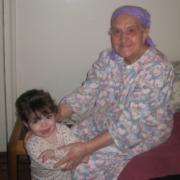
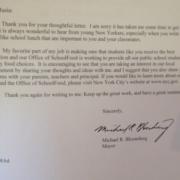
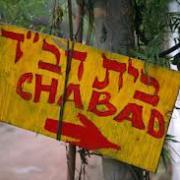
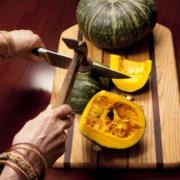
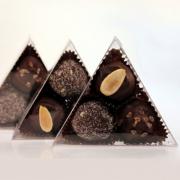

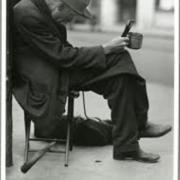
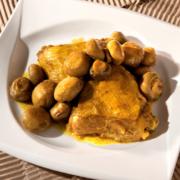
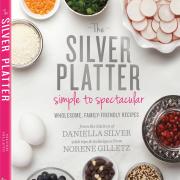


So beautifully written….
I loved this piece!
Thank you so much!